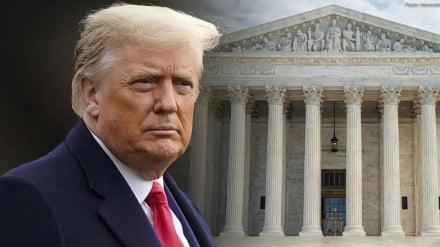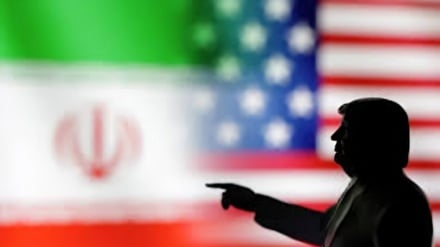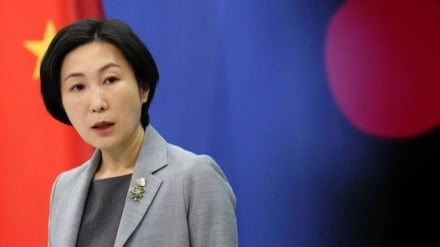Trump seeks to exit the Ukraine crisis; focusing on China is a priority
-

Trump seeks to exit the Ukraine crisis; focusing on China is a priority
Pars Today - A meeting of European and American leaders regarding Ukraine was held in Washington on Monday.
Washington, the capital of the United States, hosted an important meeting on August 18, 2025, attended by Donald Trump, the U.S. president; Volodymyr Zelensky, the president of Ukraine; and several European leaders, including the heads of France, the United Kingdom, Germany, Italy, Finland, the European Union, and NATO.
The Washington summit was held to discuss the future of the war in Ukraine and explore solutions for achieving lasting peace in the country. This meeting followed recent negotiations between Donald Trump and Vladimir Putin, the presidents of the U.S. and Russia, in Alaska, which concluded without a tangible agreement but with an emphasis on the need for a permanent peace deal rather than a temporary ceasefire.
In this context, the U.S. has played a key role in persuading Ukraine to accept peace with Russia. There are several reasons behind this effort. First, before returning to power in the U.S. in 2025, Donald Trump had promised to end some of the world’s conflicts and touted peace in Ukraine as one of his diplomatic achievements. In Trump’s view, the continuation of the war in Ukraine also threatens U.S. interests and must be ended as soon as possible so that the United States can focus on confronting China.
Second, domestic pressure in the U.S. to reduce military support costs for Ukraine is increasing, with some officials, including Vice President J.D. Vance, arguing that the primary burden of supporting Ukraine should fall on Europe.
Third, the current U.S. administration has concluded that the West has no chance of defeating Russia in the Ukraine war and that continuing the conflict is futile. However, the Americans, along with the Europeans, are striving to provide Ukraine with security guarantees during peace negotiations—aiming both to secure Kyiv’s acceptance of territorial concessions to Russia and to prevent future wars.
Thus, one of the main topics of the Washington negotiations was the proposal of security guarantees for Ukraine, designed similarly to NATO’s Article 5 on collective defense. These guarantees would entail a collective response from the U.S. and its European allies to any external attack against Ukraine, without Ukraine formally joining NATO.
Steve Witkoff, the U.S. special envoy, claimed that Putin had agreed to these guarantees during the Alaska meeting. Zelensky called the move a "historic decision" and stressed that the guarantees must be practical and reliable, ensuring Ukraine’s land, air, and maritime security.
European leaders also supported the proposal but called for Europe’s active involvement in its implementation to avoid repeating the failed experience of the 1994 security guarantees. However, it appears these guarantees would come in exchange for territorial concessions to Russia.
Ukraine, which had previously strongly opposed ceding any territory to Russia, is now moving toward compromise under diplomatic pressure from its Western allies and military pressure from Russia—for several reasons.
First, the realities on the ground demonstrate the difficulty of reclaiming regions like Crimea and parts of Donbas. Trump has explicitly stated that retaking Crimea is impossible and that Ukraine should abandon its bid to join NATO.
Second, war fatigue and dwindling military resources, particularly due to limitations on U.S. aid, have pushed Kyiv toward accepting peace talks.
Third, the unified support of European leaders and their emphasis on the necessity of lasting peace have led Zelensky to conclude that multilateral negotiations involving the U.S. and Europe could be the best opportunity to ensure Ukraine’s long-term security. For this reason, Zelensky has insisted that any agreement with Russia must include security guarantees from the U.S. and Europe to prevent another war with Russia.
In any case, the Washington summit, attended by the leaders of the U.S., Ukraine, and several European countries and institutions, marks a turning point in diplomatic efforts to end the bloody war in Ukraine. The U.S. seeks to end this war for political, economic, and geopolitical reasons, while Ukraine, potentially accepting territorial concessions, is looking to secure strong security guarantees. However, the success of these negotiations depends on the parties’ ability to balance Russia’s demands with Ukraine’s expectations—and if this does not happen, achieving peace in Ukraine will become far more difficult than it is now.
MG


